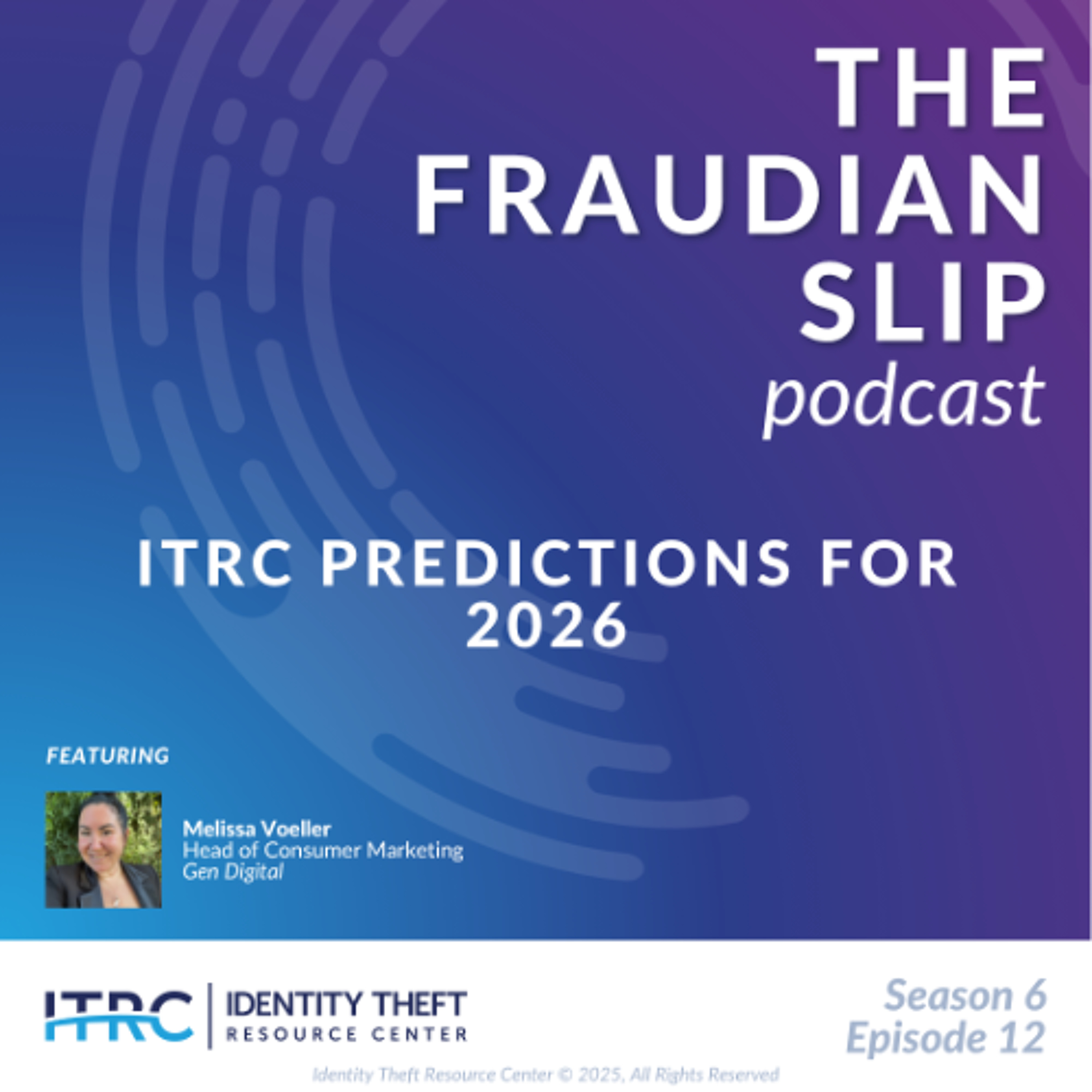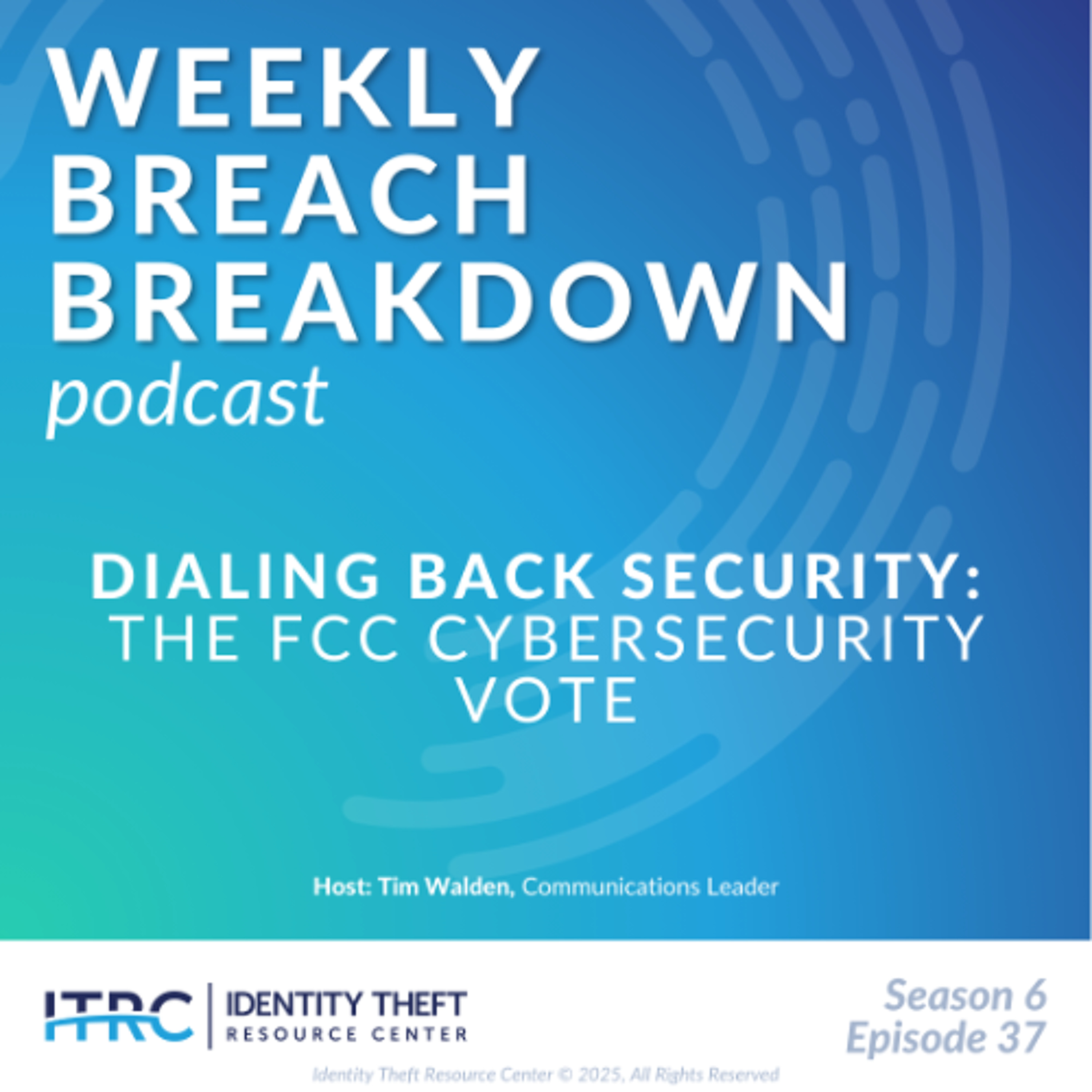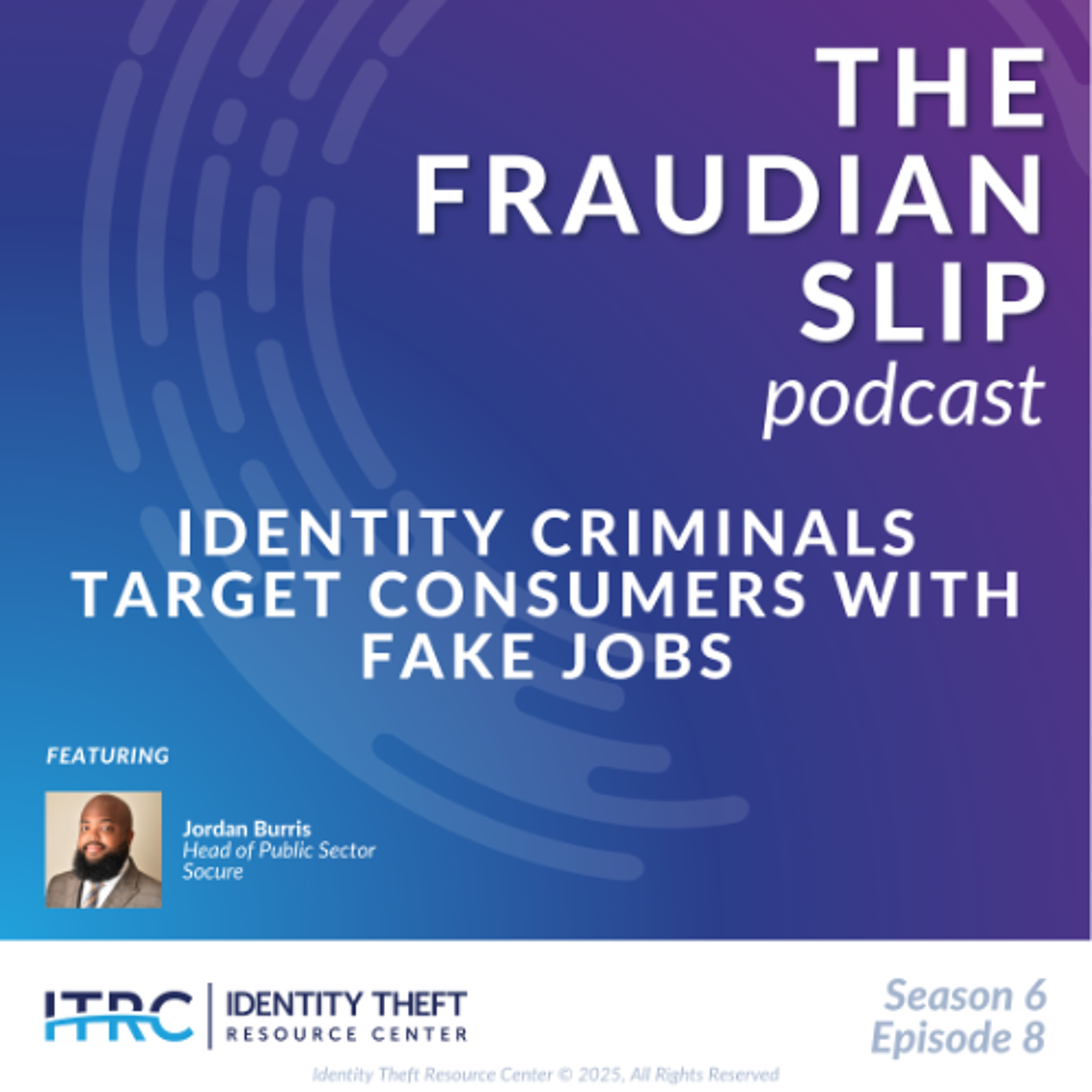Chances are that sometime in the past week or this week, you will receive a text from someone claiming to be a job recruiter. It will be fake.
Show Notes
Follow on LinkedIn: www.linkedin.com/company/idtheftcenter/
Follow on Twitter: twitter.com/IDTheftC
Show Transcript
Below is a transcript of our podcast with our special guest, Jordan Burris of Socure
Welcome to the Fraudian Slip, the Identity Theft Resource Center’s (ITRC) podcast, where we talk about all things identity theft, fraud and scams that impact people and businesses. This month’s episode focuses on the hot topic of fake jobs.
Chances are that sometime in the past week or this week, you will receive a text from someone claiming to be a job recruiter. It will be fake.
You may be looking for a job and have responded to a job posting on a job search app or social media platform, such as LinkedIn. Those are more likely not to be fake jobs. However, being listed on a mainstream website is no longer a guarantee that the website, the company or the listing is real. They may look real thanks to artificial intelligence.
With uncertainty creeping into the job market at the same time cybercriminals are honing their scam skills, it’s a tough time to be looking for work. The risk doesn’t impact just job seekers – businesses are also caught in the crosshairs of this battle.
Job scams are among the top three reasons identity theft, fraud and scam victims contact the ITRC. Here to talk about what’s happening when it comes to fake jobs is Jordan Burris of Socure and a member of the ITRC Board of Directors, as well as a former White House cybersecurity staffer. Also, as always, Eva Velasquez, the ITRC’s CEO, is here to discuss how these trends affect individuals.
We talked with Jordan Burris about the following:
- The story of how Socure ended up impacted by a job scam
- What Socure learned from the experience
- Actions businesses can take to protect themselves from fake jobs and related job scams
We talked with Eva Velasquez about the following:
- Her reaction to the Socure job scam
- The most common signs that a job offer might be a scam and what type of information criminals want
- What job seekers should do to protect themselves
Contact the ITRC
If you think you have been the victim of an identity crime, a fake jobs scam or want to avoid becoming one, you can speak with an expert ITRC advisor about your identity issues. We’re available on the phone or via text (888.400.5530), you can chat with us live on the web or send us an email during normal business hours (6 a.m.-5 p.m. PT). Just visit www.idtheftcenter.org to get started.
Please hit the like button for this episode and subscribe wherever you listen to podcasts. Join us next week for our sister podcast, the Weekly Breach Breakdown. Until then, thanks for listening.
Listen On
Also In Season 6
-

The Fraudian Slip Podcast: Gen – ITRC Predictions for 2026 - S6E12
Welcome to the Fraudian Slip, the Identity Theft Resource Center’s (ITRC’s) podc -

The Fraudian Slip Podcast: Identity Theft Resource Center - 2025 Business Impact Report - S6E11
Welcome to the Fraudian Slip, the Identity Theft Resource Center’s (ITRC’s) podc -

The Weekly Breach Breakdown Podcast: Dialing Back Security – The FCC Cybersecurity Vote - S6E37
Welcome to the Identity Theft Resource Center’s (ITRC’s) Weekly Breach Breakdown -

The Weekly Breach Breakdown Podcast: A(I) House of Cards – ChatGPT Issues Impact Users - S6E36
Welcome to the Identity Theft Resource Center's Weekly Breach Breakdown for Nove
